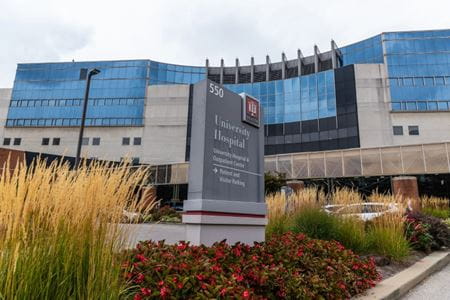INDIANAPOLIS – Indiana University School of Medicine announced today that of the thousands of participants who enrolled across the United States in the late stage clinical study of an investigational COVID-19 vaccine known as AZD1222, 530 Indiana residents participated in the study at the IU School of Medicine site. AstraZeneca released the results of this nationwide study saying, “the vaccine is 76% effective at preventing symptomatic COVID-19 and 100% effective against severe disease and hospitalization.”
“We want to thank the thousands of Indiana residents who volunteered to take part in this important research study,” said Cynthia Brown, MD, an associate professor of clinical medicine who led the study at the IU School of Medicine site. “We are especially grateful to those who have been historically underrepresented in clinical trials for their participation.”
Researchers at the IU School of Medicine study site and staff at the Indiana Clinical and Translational Sciences Institute (CTSI) set bold goals to recruit participants who are representative of the demographics of Indiana, which includes several historically underrepresented groups. The actual demographic enrollment breakdown can be seen below.
| Enrolled nationwide | Enrolled at IU School of Medicine site | Marion County population* | Indiana population* | |
| White (not Hispanic) | 71.5% | 78.0% | 54.1% | 78.4% |
| Hispanic/Latinx | 11.2% | 12.0% | 10.9% | 7.3% |
| Black/African American | 9.8% | 5.0% | 29.1% | 9.9% |
| Asian | 5.3% | 3.0% | 3.8% | 2.6% |
| American Indian | 1.8% | 0.4% | 0.4% | 0.4% |
| 65+ years old | 23.6% | 19.0% | 12.9% | 16.1% |
| *From www.census.gov |
“We’ve exceeded our recruitment goals for Hispanic and older Indiana residents,” added Brown. “Unfortunately, we did not reach our recruitment goals within the Black community, showing we still have much more work to do to gain the trust of the Black population.”
Indiana residents from all over the state including many rural communities traveled to Indianapolis to participate in this study. Indiana CSTI study team members have connected with faith leaders and others who work closely with the Black community who was underrepresented in this study in an effort to strengthen trust moving forward.
During this Phase III study, two-thirds of participants received the AZD1222 vaccine and the remaining one-third received a saline shot as the placebo. This was a double-blind trial, so neither the participants nor the researchers knew who was getting the vaccine and who was getting the placebo.
As study participants have become eligible to receive other vaccines, Brown has unblinded them to let them know whether they received AZD1222 or placebo so each participant could make an educated decision about whether they would like to receive one of the other approved vaccines. Those who have been unblinded can continue to participate in the study and contribute important information about the duration of antibody response and vaccine safety.
Contact: Anna Carrera, acarrer@iu.edu, 614-570-6503 (cell)
###
About IU School of Medicine
IU School of Medicine is the largest medical school in the U.S. and is annually ranked among the top medical schools in the nation by U.S. News & World Report. The school offers high-quality medical education, access to leading medical research and rich campus life in nine Indiana cities, including rural and urban locations consistently recognized for livability.
About IU Research
IU's world-class researchers have driven innovation and creative initiatives that matter for 200 years. From curing testicular cancer to collaborating with NASA to search for life on Mars, IU has earned its reputation as a world-class research institution. Supported by $854 million last year from our partners, IU researchers are building collaborations and uncovering new solutions that improve lives in Indiana and around the globe.
About the Indiana Clinical and Translational Sciences Institute
The Indiana Clinical and Translational Sciences Institute (CTSI) brings together the state’s brightest minds to solve Indiana’s most pressing health challenges through research. It is a statewide partnership among Indiana University, Purdue University, the University of Notre Dame and numerous life sciences businesses, government entities, and community organizations. The Indiana CTSI engages with the public at every level of research—from basic science to patient care. It has been continuously funded by multimillion-dollar grants from the National Institutes of Health since the Indiana CTSI’s founding in 2008 and is housed at the Indiana University School of Medicine. For more information, visit indianactsi.org.




